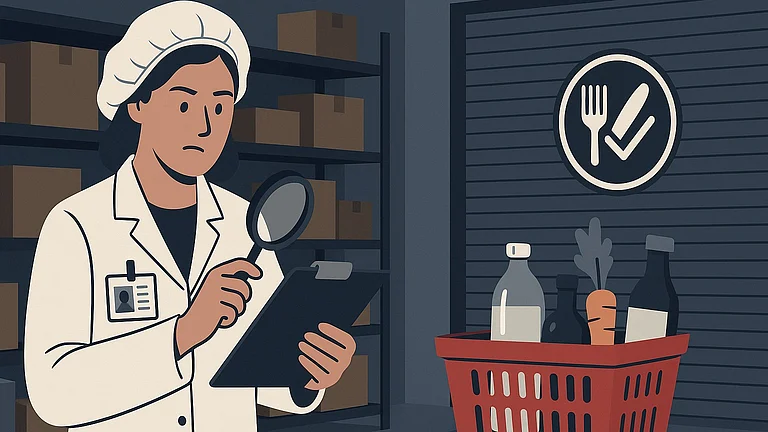Ecommerce and quick commerce platforms are increasingly coming under regulatory scrutiny, as authorities step up efforts to ensure food safety and curb deceptive online practices. For food safety, FSSAI has been tightening compliance norms like licensing, product labelling, and quality control.
At the same time, government bodies have also turned their attention to the rise of “dark patterns”, designed marketing tactics used to manipulate consumer choices. Practices like false urgency alerts, hidden costs added at checkout, subscription traps, and disguised advertisements that manipulate consumer decision-making fall under dark patterns.
The government is working in tandem to address both these concerns, recognising that consumer trust and public health are deeply intertwined in the digital marketplace.
Food Safety Row
Union Minister Jitin Prasada, in a written reply to the Rajya Sabha last week, said the Food Safety and Standards Authority (FSSAI) issued notices to 526 storage facilities of ecommerce food businesses after more than 8,000 inspections for violating regulations in FY25.
The authority had even conducted five meetings with ecommerce and food business operators in the past two years to discuss the regulatory expectations like complaint handling, training delivery personnel, product labelling, warehouse checks, and more.
He also highlighted that FSSAI already specified procedures for the registration and licensing of ecommerce platforms, which also included their responsibilities.
Ecommerce food platforms are required to ensure that all listed vendors hold valid FSSAI licenses or registrations, display mandatory food details—including information on the principal display panel—and promptly remove any non-compliant products.
The FSSAI addresses enforcement and compliance matters with State and UT Food Safety Commissioners during quarterly Central Advisory Committee meetings, the minister said.
Dark Patterns Row
In June, e-commerce platforms also received an advisory from the Central Consumer Protection Authority to conduct self-audits within three months to identify and eliminate "dark patterns", deceptive design practices that mislead consumers into unintended actions.
Based on their audit findings, it said that platforms are encouraged to provide self-declarations confirming their sites are free from deceptive practices. The CCPA said these declarations would help build consumer trust and create a fairer digital marketplace.
The government notified guidelines for preventing dark patterns in 2023, identifying 13 specific practices, including basket sneaking, confirm shaming, forced actions, interface interference, bait and switch tactics, drip pricing, and subscription billing traps.
The government had even established a Joint Working Group, comprising representatives from ministries, regulators, consumer organisations and national law universities, to monitor violations and suggest awareness programmes.
The directive is part of the government's broader strategy to strengthen consumer protection in the digital economy as online commerce continues to expand rapidly across the country.
































